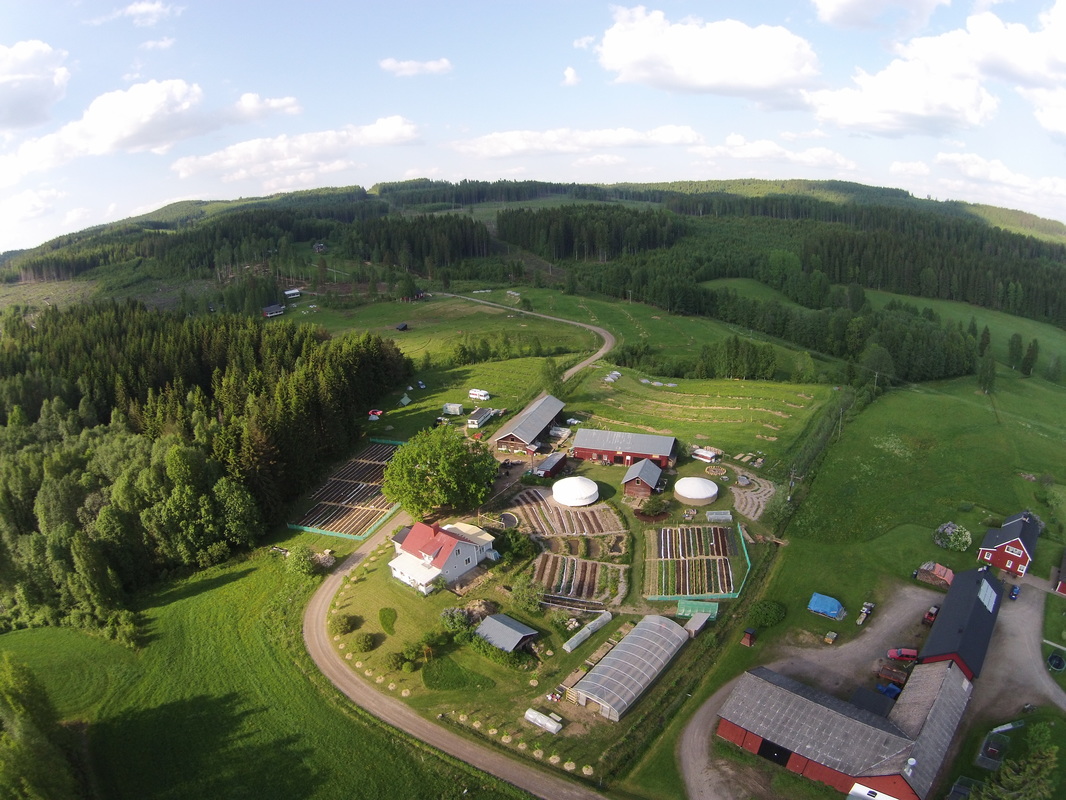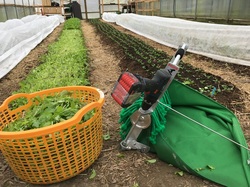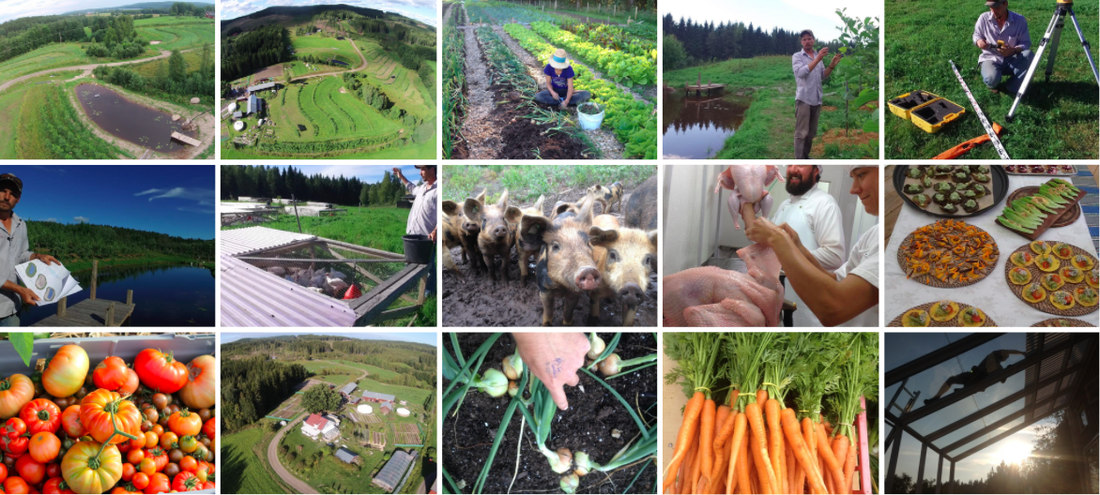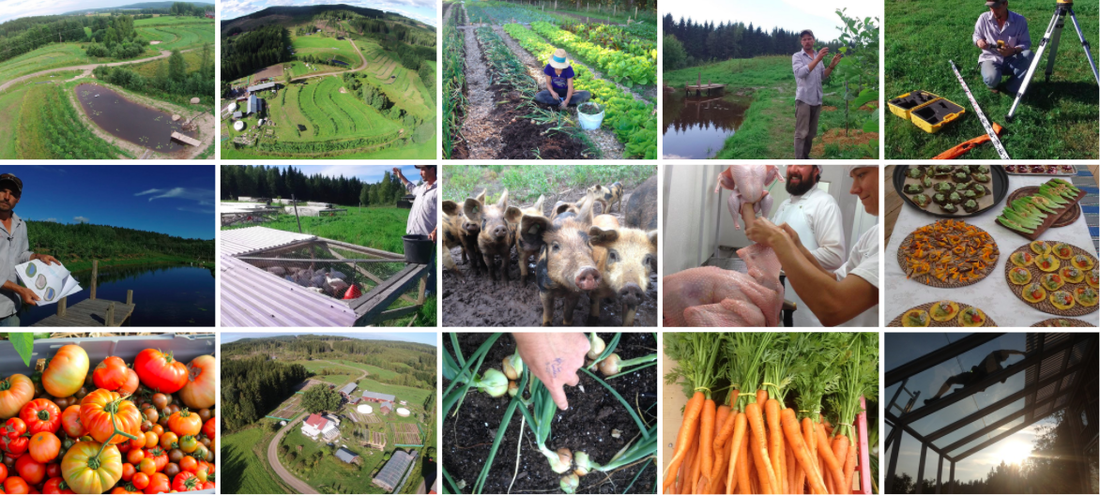 Reflecting back on my life journey that has led me to this point, I take a moment to ponder where we are at as a species, and what has really changed in my short window into the world. It feels poignant to consider all the thought, care and attention that is invested in creating a farm worthy of people’s interest, worthy of a future and perhaps worth my children taking it on. With my second child on the way what sort of a world can I expect my children to inherit? A basic question we probably all share, and yet humans are still casting a big shadow over planet Earth right now; billions of people that make up the population are failing to be acceptably housed, clothed, educated or employed in meaningful work. When I consider the complexity and the fragility of the miracle of life on Earth I feel it is probably fair to assume that is still the rate of affluent nations consumption that casts this shadow, not really the numbers of our population. Whilst the affluent people of this earth, ourselves included, enjoy lifestyles that imposes a grossly disproportionate pressure on planetary ecosystems, our over development through our technological advances has sped up the use, and misuse, of the Earth’s resources and now this shadow stems from all of us, darkening our lives. We have destroyed so much of the soil on earth, even that which was marginal at best, and continue the rampage to the tune of billions of tons per year. This most precious resource, the very foundation of life on terra firma, is being washed and blown away each year largely as a result of industrial agriculture to which we all contribute by way of our consumption patterns. The resulting deforestation, habitat destruction and poor water management, which is one of the biggest limiting factors in agriculture, means that in the next decades we can expect to lose much more of our remaining arable land if we choose to continue, whilst populations continue to grow and stretch the seams of the exhausted resource base. The massive problems with deforestation, particularly in the tropics where nutrients are held up in the plants rather than the soil like in our temperate climates, is happening with a zest that will leave very little for my children’s generation. I see continued destruction in all other areas; in the oceans we continue to ravage fishery after fishery, and the great mammals of the sea are all following the sad track to the whales. Seas all over the globe are now awash with plastic particles that attract and suspend heavy metals in a dangerous soup that is absorbed by plankton and then makes its way up the food chain to toxic high levels in the pelagic fish species which we tend to eat. The effects of nuclear pollution will play out for decades or longer, no doubt. The lakes and rivers are virtually all polluted all across the globe, many of the great rivers no longer flowing year round to the sea. We are using the skies as dust bins and filling bigger and bigger holes in the ground with other toxic waste products of an increasingly consumerist industrial world. We have upset the carbon dioxide balance in the atmosphere triggering global weirding and the unpredictable extreme weather events that threaten agriculture more than anything. People are cashing in on that too, from carbon taxing to green waves of consumerism leaving us in a fuzzy place consuming just as many products of slightly more ecologically minded makeup; yet never actually encouraging the radical notion of a widespread limit to consumption. Obviously this overtaxing of the world’s resources leads to increased conflicts and ultimately breakdown of political, economic and social systems. So this cloud over the Earth, this long shadow, feels like the darkest and the deepest it has been during my short life. Whilst the debate is really over for ‘peak’ everything and climate change, we inhabit a paradoxical state where increasing amounts of positive media and diverse opinion carry risk of forgetting consumption still exponentially increases all the while. The hopes of democratized media through new digital channels has really proved a double edged sword, where scandal and control still pervades, and fleeting unsubstantiated opinions often quickly cement into “fact”. It does, however, give birth to a breeding ground and an opportunity to engage in a new conversation about the world we wish to live in and indeed bequeath our children with. And the question ultimately, for me, is can we turn from a world of war to a world of peace and respectful relating? From patterns of dominance to a model of cooperation, from violence to healing? From empire to global village community? It seems evident to me that the leaders of political and corporate powers in the modern world are really incapable of providing the necessary leadership inthis great work, so we have to look at local solutions and look for new dynamic leadership. That is a gift which anyone can choose, as indeed so many of us already are. These problems began long ago when our ancestors put aside their more egalitarian and gender balanced ways of earlier human society to establish the rule of dominion by bow and sword, and since that there has been a brutal competition for power that has created a restless play or die, rule or be ruled dynamic of violence and oppression. Conquest, therefore, has became a measure of greatness where male vengeful gods replaced forgiving goddesses, and the wisdom of the elders and priestesses gave way to the all-powerful kings and queens of the hall. People lost, (and were often forced to lose) their attachment to the earth as societies became divided by the ruler and ruled. This happened many thousands of years ago in Mesopotamia in the land we call Iraq today and there is evidence, such as from the work of James de Meo and Jared Diamond, indicating that intense and rapid climate change is undoubtably linked to rapid cultural shifts from Matriarchal to Patriarchal warring societies, where the first waves of armoured patriarchs come from there rapidly changing desert regions in the Sahara and central Asia; once the bread basket of the world. Lush Savannahs dense with animals and abundance that are now barren and bear witness to some of the most violent societies on earth. In the area that is now at the eastern end of the Mediterranean, where sea levels rose incredibly quickly as the Bosporus flooded, displacing countless communities, people had to fight neighbours for basic resources. We see archaeological evidence of plump, forgiving female goddess figures suddenly replaced with male vengeful archetypes. This occurred all the way east through to what is now Pakistan, where river systems changed their courses leaving people to fight over limited resources. It is not hard to imagine major cultural shifts when we imagine the world of abundance we have always known suddenly shattered; trust in the all providing entities undermined. Modern history illustrates how people will most often descend into a basic conditioned self- survivalist mentality when faced with grave risk. Since that early fateful turn away from earth community, imperial institutions have been systematically denying humanity to the vast majority of humans, instead reducing them to conditions of servitude whilst elevating the most power driven and ethically challenged among us to the highest positions. The era of empire would seem to be reaching the limits of what people on earth can tolerate now, and social, ecological and economic break down that is happening around us are just manifestations of this. In these last several thousand years we have seen the primary institutional form of empire move from city states of ancient times to the imperial nation states of the modern era and now the imperial global corporations that have been emerging and entrenching their positions in my short lifetime. Personally, I find that really quite radically scary because they appear beyond, or possibly replacing assumed roles of government, and that pattern of dominance and exclusion remains constant. Radical and potentially devastating change that will shift the economic advantage from global corporations to local communities is perhaps the inevitable benefit ofany deep economic breakdown, energy crises or heavy climate change impacts. Obviously without oil life on earth will look very different. Long haul transportation and global supply chains will have to become relics of a dying era, and vast sprawling suburban landscapes and out-of-town shopping based on car dependency will have to diminish. Perhaps of greater consequence; oil based agricultural will have to end. Increasingly people are aware that many fertilisers and agrochemicals are based on pure oil products, yet we still rely so heavily upon this production chain. And thus the resulting wars to secure access to more cheap oil to keep the whole thing growing and perpetuating. History continuously reminds us we will likely see a lot more wars for the last remaining resources. The consequences of climate change will only be exacerbated in this time, the resulting shorter or less predictable growing seasons and loss of global crop yields will no doubt affect the poorest people on earth the most. Water shortages are hitting wider regions in more countries and that brings about things like forest fires and famines, which lead to disease epidemics. The ensuing endemic resource wars, uncontrolled migration and continually growing trade gap in major world economies is another indication of people living way beyond their means, and running up a credit card debt to the rest of the world, which will obviously be left to our children. If we allow this situation to continue to the “last man standing” competition for the final resources that remain we can surely only anticipate further escalations of military conflict, terrorism and deeper societal fragmentation. Was that not so after the fall of the Roman Empire? Everything is always changing, but does it not somehow still all look the same? We really have a choice to bring forth a new era. An era grounded in the principles of community, cooperation, justice, ecological awareness and nonviolence. Unfortunately it seems the ability to make the obvious choice for life is seriously hampered by the ill-advised economic policies of the military-industrial-globalist think-tanks that have taken over and hijacked the modern political system. The commitment to the elitist agenda of imperial wars and occupations in the name of peace and democracy still gives priority to corporate profits at the expense of people, their communities and nature. These stories are alarmingly embedded in all of us. The idea of our western democratic life is bred into us at such a young age, but when I look around I do not really see much evidence of any such thing as democracy. Just look at wartime rhetoric, which follows the same pattern over the last century, in the repeated assertion that we only intervene with other nations to promote peace and democracy, human rights or economic justice. Fortunately more and more people understand this to be blatantly false.  Yet it shall be said, we are species of many incredible possibilities; so many gifts, strengths and talents pervade our communities. It is, in my experience, the foundation of our nature to be of benefit to all through our words and actions. Does nature not reveal this basic pattern so thoroughly and undisputedly? Yet this basic human right, to express benefit to all, has been categorically and systematically denied by the institutions and culture of empire. My experience is that greed and violence in humans, even the most subtle forms, are only symptoms of developmental pathologies that are systematically cultivated by imperial cultures and its institutions. Our cultural stories are really defined by prosperity and security. The prosperity story tells us that an eternally growing economy benefits everyone and that growth requires really wealthy people to invest and create jobs, and thus we should free up these rich people from taxes and regulations. Meanwhile we should cut away any benefit programs that might strip the poor of their motivation to contribute to society. Then we have a security story that tells of this dangerous world full of criminals and terrorists and foreign enemies who have got to be controlled or removed by strong police and military forces. This idea spreads scarcity at the same time as affirming economic inequality and legitimising the use of physical force to impose the will of rulers. It surely gives some degree of protection to the citizen, but more weirdly often affords a sense of righteousness to the rich and powerful. Given the reach and tenacity of these stories, would it not it follow that effectively all we need to do to change the course of history is to change the stories that we live by? Whether we like to think so or not, the media continues to shape so much of our values for political gains, infectingevery deep sinew and fiber of our beings. Yet at thecore, of all the things we really wish for in the world, is there anyone who could truly represent those desires for us? My wish is to simply live my life as fully as I can. Where the line between work, rest and play has become so obscured that it is life itself to which I am employed. What has all this got to do with agriculture? Whilst global situations seem to have worsened parallel to my exposure to all the solutions oriented work of so many, perhaps the biggest change is in the ability to share our voices. The rapid ease in which we can tell our stories and connect across the ether in this time is unprecedented. It has never been easier to forge ahead true to our beliefs and dedicate ourselves to the benefit of all. It is the truth and passion of our stories, that resounding hope, that people long for. We all long for connection to the world around us, the people around us and the food that nourishes us. Regenerative agriculture is in the business of supplying more than just food. For it is the nourishment for the senses and mind, nourishment or the whole family experience that we bring. Regenerating community involves empowering and including everyone. With the combined gifts, strengths and talents in our communities we have all the creativity, passion and resources to start a new course. The Permaculture space has done so much to benefit so many around the world, and yet it still remains very much a fringe movement. How do we normalize the movement? Are we listening and understanding the needs of the wider communities around us, who are also committed to be of benefit with the skills and means available to them? The danger of any collective identity is the sense of “us and them” mentality, which fails from the outset to connect with the whole. How are we to make agricultures that can restore the soils and ecosystems whilst rekindling local economy and community the new normal? One foundation that unites us all on the most basic level is food. Whilst the market for real food is continually growing, the larger pool of potential customers are not even aware they want this kind of food, this experience, to enrich their lives. Education, then, is a huge part of the long-term solution to benefit the whole. Fling open the gates to the farms, invite the people back in…. Farm Scale PDC
|
Details
Like us on FB Below for regular updatesStay up to date with customized updates you want to receive
Upcoming coursesArchives
December 2016
Categories
All
|



 RSS Feed
RSS Feed